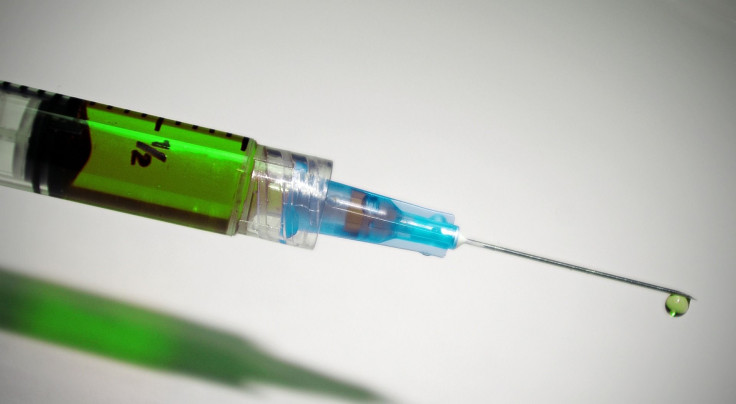Whooping Cough Vaccine: Tdap Booster Effectiveness May Wane In Adolescents

Vaccines have been a hot topic of discussion in the United States, with staunch critics loudly denouncing child vaccinations despite evidence of its success in squashing diseases. In a new study, however, experts question the effectiveness of the current whooping cough vaccine when compared to its predecessor.
Research out of Kaiser Permanente’s Vaccine Study Center found that the Tdap booster vaccine is moderately effective in protecting children against whooping cough within the first year of vaccination. But after four years, that effectiveness falls to less than 9 percent in teenagers who have received only the newest form of the whooping cough vaccine. In the 1990s, the U.S. switched the type of vaccine it administered children from whole cell pertussis (DTwP) to acellular pertussis (DTaP), due to the old vaccine’s tendency toward some side effects including high fever. Children are currently given DTaP vaccines in five doses throughout childhood: at ages 2, 4, 6, 12 to 18 months, and then at 4 to 6 years.
Despite a high rate of vaccine coverage, the U.S. has experienced an increase in whooping cough cases following the switch to the new vaccine. The Advisory Committee on Immunization recommended a booster acellular pertussis (Tdap) vaccine for all adolescents at 11 to 12 years old. The current study examined Tdap effectiveness among adolescents during specific outbreaks of whooping cough in Northern California in 2010 and 2014. Adolescents, despite having Tdap coverage of over 90 percent, had the highest incidence of whooping cough of any age group in 2014. It seems the routine vaccination at ages 11 to 12 did not prevent the epidemic.
“This study demonstrates that despite high rates of Tdap vaccination, the growing number of adolescents who have received only the newer acellular pertussis vaccines continue to be at higher risk of contracting whooping cough and sustaining epidemics,” said Dr. Nicola Klein, co-director of the Kaiser Permanente Vaccine Study Center and lead author of the study, in a press release. “Because Tdap provides a reasonable short-term protection, it may contain whooping cough more effectively if it is administered to adolescents in anticipation of a local outbreak rather than on a routine basis at age 11 or 12.”
The research team found age-specific incidence peaked at ages 10 to 11 in both the 2010 and 2014 outbreaks. In the 2010 outbreak, the incidence of whooping cough dropped off sharply after this peak and remained low at older ages. Following the 2014 outbreak, however, incidence of whooping cough again increased in 14- to 16-year-olds.
“The strategy of routinely vaccinating adolescents to prevent future disease did not prevent the 2014 epidemic, arguably because the protection afforded by a dose of Tdap was too short-lived,” Klein said. “While awaiting development of new vaccines that will provide longer-lasting protection against pertussis, we should consider alternate Tdap immunization strategies for adolescents.”
Source: Klein N, Bartlett J, Fireman B, Baxter R. Waning Tdap Effectiveness in Adolescents. Pediatrics. 2016.



























